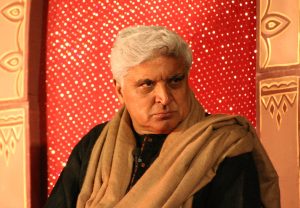Amid a sea of Bharatiya Janata Party (BJP)-ruled states, West Bengal in eastern India, which is under a Trinamool Congress (TMC) government, is regarded as a bastion of liberal thought and free speech. Led by Chief Minister Mamata Banerjee, the TMC has been in power in the state since 2011.
So when the Bengal government’s Urdu Academy canceled a much-publicized event with well-known poet and lyricist Javed Akhtar as the guest, due to objections from Islamic fundamentalists, it shocked onlookers, including liberal Muslims. Akhtar, a professed atheist, was targeted for his “anti-Allah and anti-Islam” statements.
The four-day festival titled “Urdu in Hindi cinema” was slated to be held from August 31 to September 3 with mushaira (poetry recitation), seminars, discussions, and a theatrical performance – all celebrating the Urdu language. Akhtar was invited as the chief guest for the mushaira on September 1.
No sooner was this made public than two conservative Islamic groups, Jamiat Ulema-e-Hind and Wahyahin Foundation, opposed Akhtar’s invitation to the festival. The Jamiat Ulema in Kolkata publicly referred to Akhtar as a “devil,” claiming that he had “spoken a lot of nonsense against Islam, against Muslims, and against Allah.” Incidentally, the Jamiat is headed by TMC leader and state minister Siddiqullah Chowdhury, who publicly condemned Akhtar’s inclusion as speaker.
The state’s leading Bengali news daily, Anandabazar Patrika, reported that Chowdhury warned of state-wide agitations if Akhtar was still invited to the event. It may be recalled that Jamiat was one of the organizations whose violent protests in 2007 forced controversial Bangladeshi writer Taslima Nasreen to leave Kolkata. That was during the Communist Party of India-Marxist (CPI-M)-led Left Front regime in Bengal.
Muslims comprise around 30 percent of West Bengal’s population and constitute the largest minority group in the state. In terms of electoral math, Muslims tend to largely align with the TMC, with some backing the CPI-M.
So, when these Muslim groups made their displeasure known to the Urdu Academy, electoral politics took over.
Bengal is due to vote in state assembly elections next year, and the BJP is desperate to win.
Banerjee is the chairperson of the Urdu Academy. On August 30, just hours before the event, the academy announced that it was being postponed due to “unavoidable circumstances.”
Not surprisingly, the TMC government was criticized for bowing down to threats from radical elements. Delhi-based activist Shabnam Hashmi was one of the first ones to speak out against “legitimizing the Muslim right wing.” Calling out Islamic radicalism, Hashmi warned, “This is the beginning.” She said she refused to share platforms with the Muslim right wing, and many activists were fooling themselves by supporting them in the name of fighting against Hindu majoritarian politics.
In Bengal too, civil society groups wrote an open letter to the chief minister slamming her “pandering to Muslim fundamentalists.” The signatories, who included several Muslim intellectuals, pointed out that the event in question was about the Urdu language and it is “everyone’s language” and “not the exclusive property” of any single community. They stated that the festival was about the influence of Urdu in Hindi cinema and not about Akhtar’s religious views, which could be offensive to some. “This embarrassing turnaround in invitation withdrawal has affected the image of Kolkata as the last fortress of liberals,” they said.
“India is a country of diversity and we need to listen to views even when we do not agree with them,” social science researcher Sabir Ahamed told The Diplomat, pointing out that “acts of this kind [i.e., shutting down voices like those of Akhtar] only strengthen social communal polarization.” Such actions don’t help in the development of the Muslim community. Instead, “Muslims should be raising burning issues like how Muslims are being adversely impacted by the state’s revised Other Backward Classes policy or how Bengali-speaking Muslim migrant workers are being targeted in several states,” Ahamed said.
The Hindu nationalist BJP often accuses Banerjee of practicing the politics of Muslim appeasement and in the latest controversy, Bengal BJP leader Suvendu Adhikari has lambasted the TMC as “Muslim League 2.”
The controversy over the cancellation of the invitation to Akhtar has reverberated not just within India but abroad as well. Urdu Culture London and the Anjuman Taraqqi Urdu UK — both organizations in the U.K. that promote the Urdu language — said in a statement that they “unequivocally condemn this attempt to silence literary and artistic expression.”
“While difference of opinion ought to be respected, coercion, intimidation and censorship have no place in a democratic society,” the statement said.
While several people have been offended by Akhtar’s public statements, with an opinion piece in Maktoob Media, even accusing him of “selective atheism and political opportunism,” the fact remains that the event to which Akhtar was invited was not a religious event.
Akhtar is a prominent poet and lyricist in the film industry, who has authored five books of Urdu poetry and penned over 1,100 songs for Hindi films. The invitation was for his literary contribution and not for his views on religion. Therefore, the two issues should not have been conflated to assuage political vote banks.
As Akhtar himself summed it up: “I believe as long as both Hindu and Muslim fundamentalists are abusing me, I am doing something right. My name, Javed Akhtar, has nothing to do with Islam.”
The writer said that for decades now, he has been receiving hate mail from both Hindu and Muslim conservatives. He said that what disappointed him this time around was that the hateful remarks emanated from Bengal, a place where he had never faced communal backlash before.
At the end of the day, citizens need to actively ostracize both Hindu and Muslim fundamentalists and keep them at bay, ensuring that they do not become mainstream. Otherwise, religious dogmatism will further stifle the freedoms that citizens still enjoy.

































